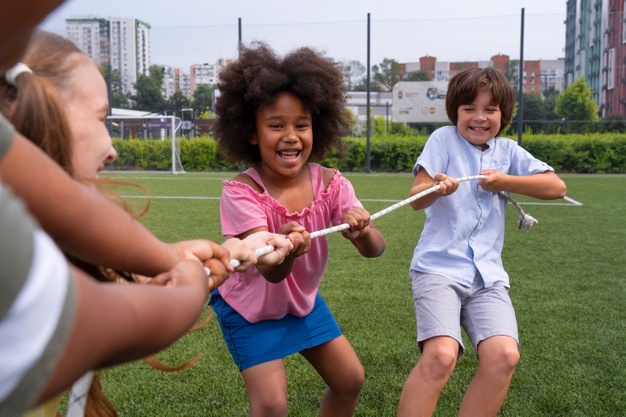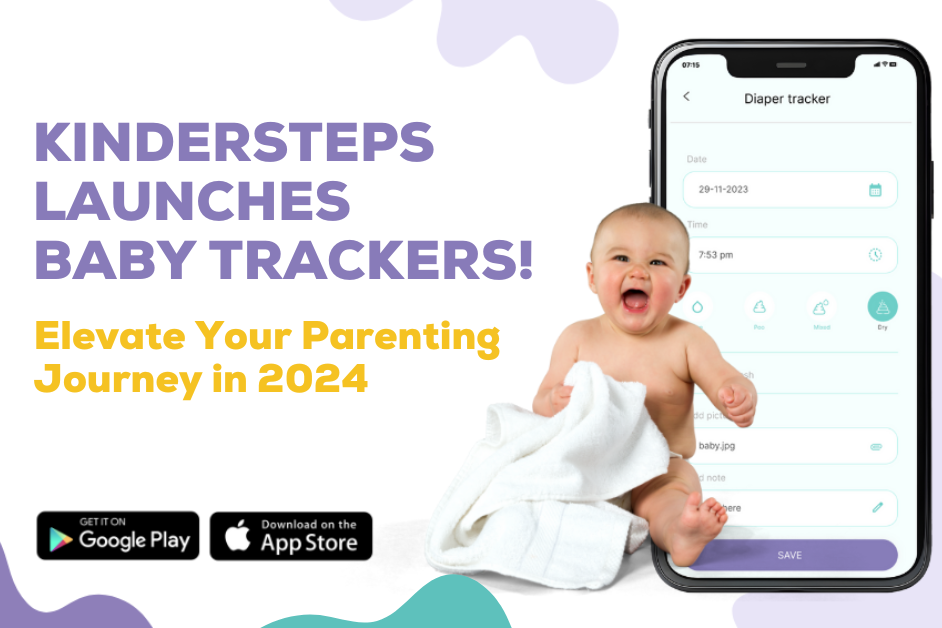It is a refreshing break from the hustle and bustle of your daily routine when you have some time at home and can spend valuable moments with your children playing. As a parent, you may be curious to know how play helps our kids, and what exactly it should look like. Do all types of play look the same? What types of play are your children engaging in?
Children’s play differs depending on their ages, moods, personalities, and environments. Babies are developing with every second that passes and by playing, they get to practice and learn all of life’s skills they need as they grow. Some skills that babies learn include, how to coordinate their body movements, talk with friends, apply rules, and more. Play is more than you think; it is a way for your child to familiarize themselves with the world while exploring and testing their own limits. At the same time, they are engaged in an activity that provides them enjoyment or amusement.
You may be curious to know how play helps our kids, and what exactly it should look like.
Do all types of play look the same? What types of play are your children engaging in?
Children play in different ways depending on their ages, moods, personalities, and environments. When we talk about play as a whole, we are absolutely talking about structured activities like music lessons, sports lessons, and other classes, but what’s more important is open-ended undirected play.
Undirected play allows children to learn to work in groups, share, practice decision-making, build strong bodies, and more. You may be surprised at the number of skills they develop through play:
- Problem-solving skills
- Thinking flexibly
- Expressing emotions
- Facing their fears
- Trying new things without fear of mistake
Children discover their own interests and passions through play. Very often, your child may find they have a love for a specific activity such as art or acting, or possibly for an animal or character. Playtime will encourage them to continue exploring their own interests and build skills they will use in the future.
All children should have time for play and parents should ensure that play is incorporated into their child’s schedule. It is the building block for establishing confidence, coping abilities, flexibility, and positive interactions with others.
There are different types of play that children engage in:
- Parallel play involves two children playing together but independently. They are enjoying different activities in the same environment and are not playing with each other. Parallel play allows children to watch and mimic each other, and in doing so learn other points of view. It encourages social skills such as sharing and recognizing social cues.
- Associative play is the next step towards friendship and cooperation. In this type of play, children are participating in the same activity, but doing so independently.
- Imaginative play allows children to broaden their worldview, practice new vocabulary, and make sense of the world around them. Role-playing, exploring a fantasy world, or even simply pretending an everyday object is something much more exciting (such as a cardboard box castle!) are all examples of imaginative play.
- Constructive play brings all the benefits of traditional play together with a couple of added bonuses, fine motor skills, and spatial awareness! This type of play can be anything from using building blocks, to creating origami.
- Physical Play is perhaps the activity that might most often spring to mind when thinking about playing! Riding a bike, throwing a ball, dancing – these are all incredibly fun examples of physical play!
- Competitive play can look like anything from participating in a board game, to playing on a basketball team or even having a drawing competition! It teaches our kids important skills such as resilience, humility, working in a team, and how to follow rules and take turns.
- Onlooker Play is when young children watch older children play. During onlooker play, children can build confidence, learn vocabulary and observe social cues while avoiding the risk of placing themselves in the action.
- Symbolic play often helps children develop emotionally, as they learn to explore and express their ideas and emotions in controlled ways.
The positive effects of play on young children are far-reaching, influencing their mental, emotional and physical health. The benefits extend to adults as well. Talking about play with children teaches them that adults are invested and respect their play decisions. This fosters better connections between adults and children. In turn, respect, trust, and love lay the foundation for the emotional state most conducive to fostering the learning brain.
Play is a tremendously important part of child development that should be encouraged and supported. However, note that children need their own time and space to learn these skills, which will come independently. Two tips for parents are:
- Make the places in your home where you spend a lot of time safe places where your child can play and be supervised easily. Give your child lots of time to explore with things like water, sand, boxes, or any other safe item that your child finds interesting.
- Provide simple and safe items, like plastic cups and plates, pots and pans, books, blocks, play tools, and crayons. This way, your child can copy your actions and work. Items should be stored in a safe place or in a container where children can easily see and get to them
Adopting a playful attitude also benefits adults' emotional well-being. In times of stress, it’s an easy way to boost your mood, so instead of using cutlery during dinner tonight, we suggest you try using your fingers (or popsicle sticks, straws, or toothpicks) instead. No one is watching and it's plain fun! Stay tuned to Kindersteps for fun ideas for your parenting journey.






.jpg?alt=media&token=166b64a9-274c-400c-95e4-baf0013e7e43)
